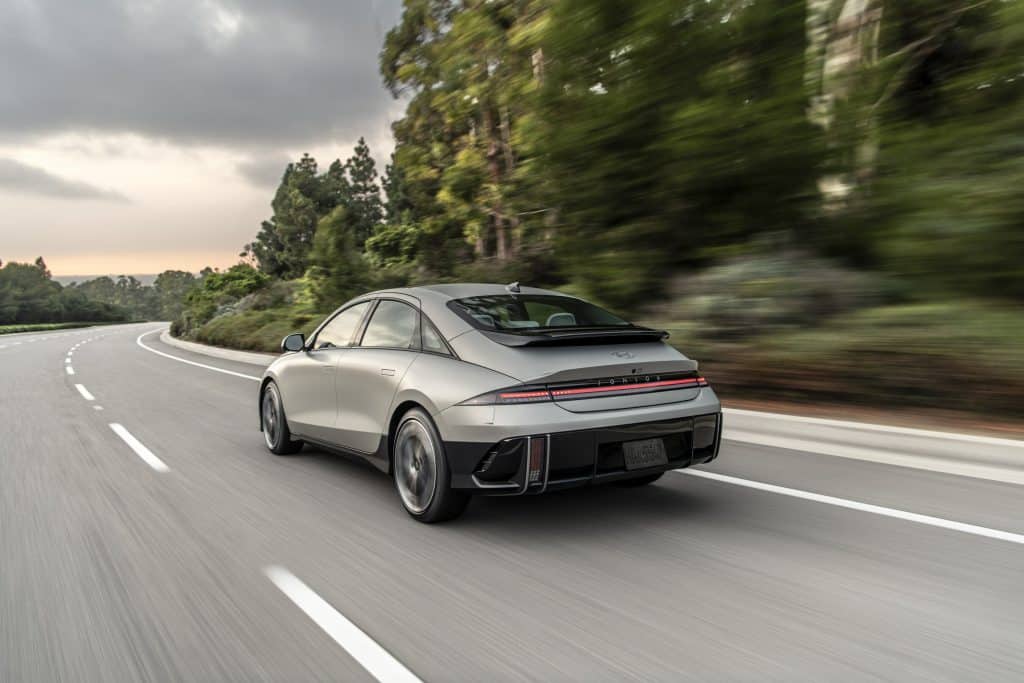
Owners of Hyundai Ioniq 5s, Hyundai Ioniq 6s, Genesis GV60s and Kia EV6s filed a nationwide class-action lawsuit against the automakers following more than a year of reports of seriously defective charging ports in their vehicles, leaving owners and lessors potentially stranded, according to leading automotive law firm Hagens Berman.
About the Hyundai, Kia and Genesis Charging Port Defect
The lawsuit was filed July 26, 2023, in the U.S. District Court for the Central District of California, and alleges Hyundai and Kia prominently advertised vehicle charging times between five to seven hours, depending on vehicle make, with use of a Level 2 home charger. In reality, vehicle charging ports frequently overheat in as little as 30 minutes, causing the charging session to unexpectedly and repeatedly fail. Owners report a protracted and burdensome charging process.
According to the complaint, frustrated vehicle owners have taken to consumer forums and social media to report that the charging defect leaves them to either constantly monitor charging sessions and manually ensure they complete, or else contend with unexpectedly uncharged batteries when they return to their vehicles to find the charging session has failed due to overheating. Owners also “pay for this wasted energy via higher utility bills,” the complaint states.
The complaint alleges that the fix Hyundai and Kia issued further slows charging rates to ten hours or more. To add insult to injury, Hyundai and Kia continue to sell the defective vehicles, with full knowledge of the issue, attorneys say.
“Not only do Hyundai, Kia, and Genesis continue to sell vehicles that are clearly incapable of performing as advertised, they also issued a software patch which substantially worsens charging rates and widens the gap between what they promised and what they delivered,” said Steve Berman, managing partner at Hagens Berman and the attorney leading the case. The filed complaint cites one plaintiff’s experience in which fully charging his 2023 Ioniq 5 takes 20 hours, at a 5% charge rate per hour.
“Car owners rely on them to drive to work, drop off their kids at school and get to doctor’s appointments. Unexpectedly finding a car with an uncharged battery in the morning causes serious disruption to people’s lives and could have dire consequences in an emergency,” Berman said. “These aren’t hybrids. The battery charge is essential, and we believe the state of these EVs is simply unacceptable.”
Hyundai and Kia “Put a Band-Aid” on Serious Defect
According to the complaint, Hyundai, Kia and Genesis advertise the affected electric vehicles as capable of charging at a rate of up to 48 amps, but owners report charging session failure at a rate as slow as 28 amps.
In March 2023, Hyundai issued a technical service bulletin to ostensibly address the charging port defect. The software update issued by the automakers causes affected vehicles to automatically lower the charging rate to 23 amps if overheating occurs, rather than halting the charging session. According to the complaint, the technical service bulletin did not disclose, at any point, that the supposed “fix” was to cap the charger’s amp level, thereby doubling the vehicle charging time experienced by one named plaintiff in the case.
“This so-called fix does nothing to address the real problem, which is that these vehicles were not manufactured to reliably charge at a rate even close to 48 amps. It’s unacceptable for Hyundai to put a Band-Aid on such a serious defect impeding the vehicle’s stated performance,” Berman said.
The lawsuit brings claims of violation of the Computer Fraud and Abuse Act, violation of the California Computer Data Access and Fraud Act, and violations of the applicable state consumer protection laws, and seeks to recover just compensation for vehicle owners and lessors.